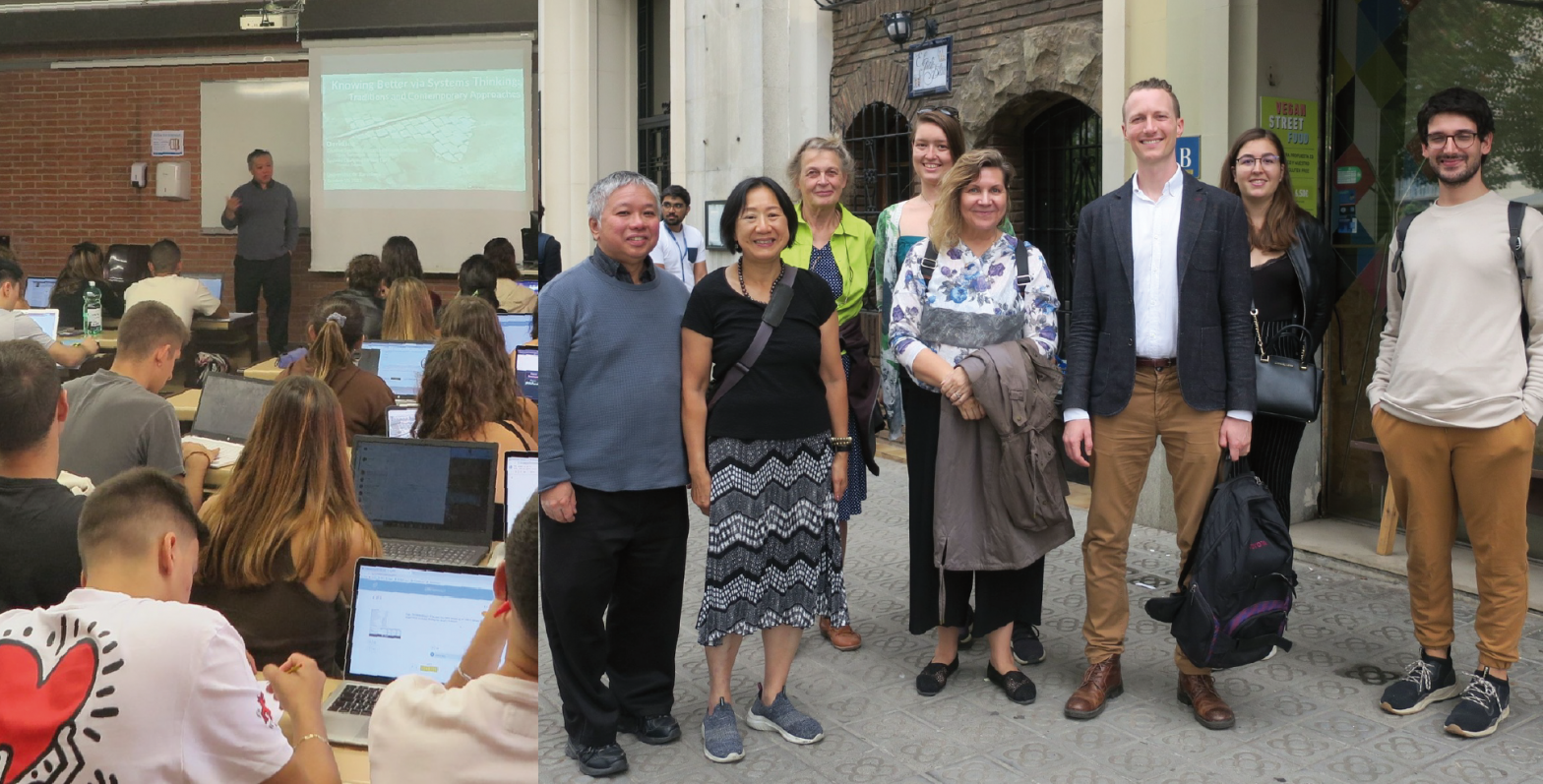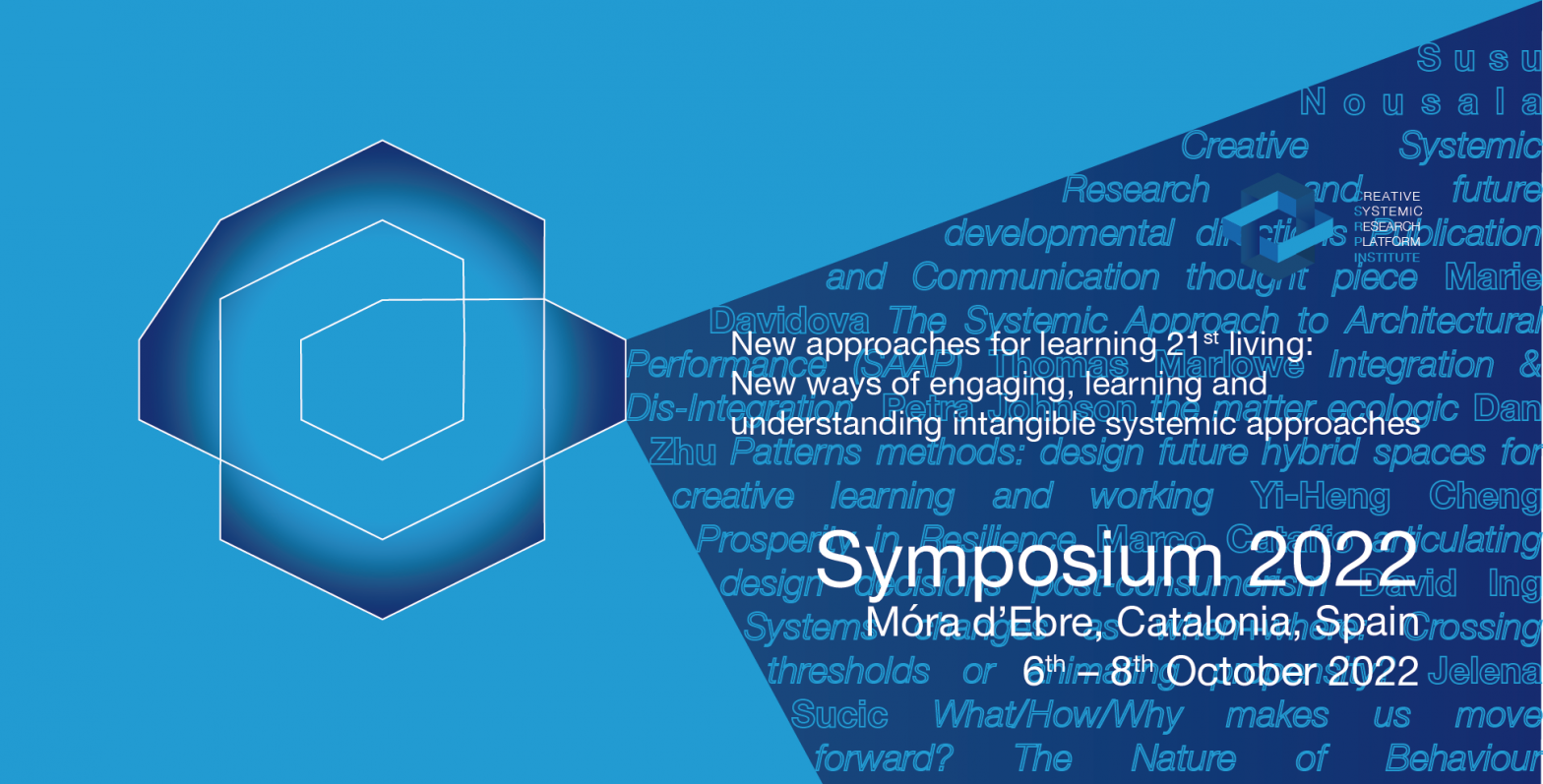CSRP Institute Symposium 2022 call collected nine Thought Pieces! The discussion schedule of the thoughts follows below:
Thu, Oct 6 (Spanish time currently CEST)
10.00 – 10:10 am: Welcome & Introduction
Slot 1: Susu Nousala, Creative Systemic Research and future developmental directions, Publication and Communication thought piece
Slot 2: Marie Davidova, The Systemic Approach to Architectural Performance (SAAP)
12:30 – 14.00 pm: Lunch Break
14:00 – 14:05 pm: Brief Summary of the morning thoughts
Slot 3: Thomas Marlowe, Integration & Dis-Integration
Slot 4: Petra Johnson, the matter ecologic
Slot 5: Dan Zhu, Patterns methods: design future hybrid spaces for creative learning and working
17:00 pm: End Thursday session
Fri, Oct 7 (Spanish time currently CEST)
10:00 – 10:10 am: Brief Summary of yesterday thoughts
Slot 6: Yi-Heng Cheng: Prosperity in Resilience
Slot 7: Marco Cataffo: articulating design decisions post-consumerism
12:30 – 14.00 pm: Lunch Break
14:00 – 14:05 pm: Brief Summary of the morning thoughts
Slot 8: David Ing, Systems changes as when+where: Crossing thresholds or animating propensity?
Slot 9: Jelena Sucic, What/How/Why makes us move forward? The Nature of Behaviour
16:00 – 17:00 pm: Summary discussion per each speaker and end Friday session
Learn more about the call
To partecipate in the discussion contact us via email and we will share the zoom link with you




